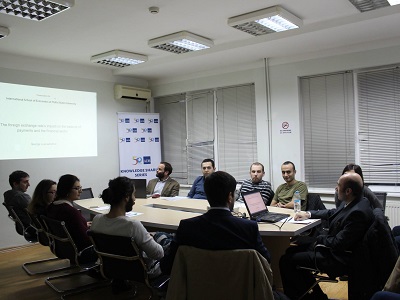- Details
On December 12-14, two ISET-PI researchers, Maka Chitanava and Giorgi Mzhavanadze, attended the Good Jobs for Inclusive Growth in Central Asia and South Caucasus study finalization conference in Kuala Lumpur, Malaysia. This study was commissioned by the Asian Development Bank (ADB), and implemented by eight Central Asian and South Caucasus countries.
The aim of the conference was to finalize the study’s report, and discuss policy options to achieve inclusive economic growth by promoting the creation of good jobs. Participants included country experts, international experts, and ADB staff. Country experts from national think tanks presented key findings of their work, trends related to inclusive growth, employment, labor market policies and ways for development partners to assist with creating better conditions for enabling inclusive growth in each country.
- Details
On December 1, ISET hosted two economists of the Asian Development Bank (ADB), George Luarsabishvili (Economist, Georgian Resident Mission, Central and West Asia Department) and Dominik Peschel (Economist, Central and West Asia Department). Mr. Luarsabishvili gave a presentation entitled “The foreign exchange rate’s impact on the balance of payments and the financial sector”, during which he overviewed the effect of the recent currency depreciation to the balance of payment and financial stability of Georgia. In addition, the two guests outlined the effectiveness and timing of the current de-dollarization strategy implemented by the Georgian government.
At the beginning of the presentation, Mr. Luarsabishvili examined linkages between currency depreciation and current account deficit. He claimed that the lari's depreciation should make domestic production more competitive in the foreign market, increase export and improve current account. However, due to high and persistent dollarization, depreciation limits economic growth and aggravates foreign debt servicing. In this fashion, currency depreciation can be contractionary.












